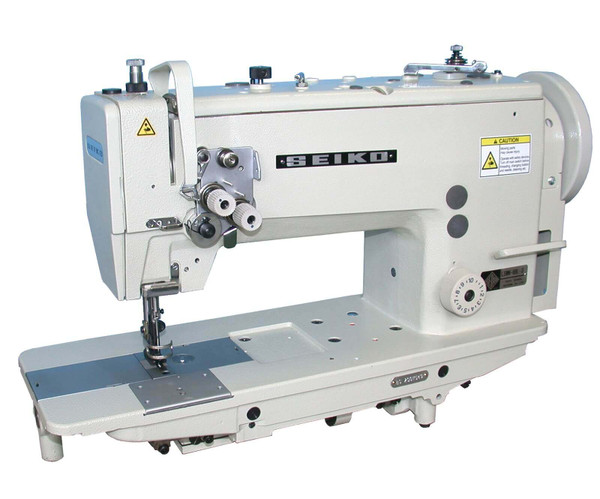
Procedural Posture
On April 23, 2021 by Morthe StandardAppellant purchaser sought review of a decision by the Superior Court of Los Angeles County (California), which entered a judgment of dismissal in favor of respondents, warranty corporation and its claim manager. Appellant’s action alleged that the vehicle service contract was a contract of insurance under Cal. Ins. Code §22, and that respondents acted in bad faith by denying him benefits under the contract.
Table of Contents
Overview
The appellants and respondents through their small business lawyer in California submitted their briefs. Appellant purchaser bought a vehicle and vehicle service contract from a car dealer. The contract specified that respondent warranty corporation was administrator of the contract. Following the denial of his claim for a breakdown, appellant brought an action against the car dealer, its general manager, and respondents, warranty corporation and its claims manager, alleging tortious breach of the contractual covenant of good faith and deceit. The trial court dismissed appellant’s claims against respondents. On appeal, the court held that following the trial court’s proper granting of respondents’ motions in limine, which on the record amounted to the sustaining of an objection to all evidence owing to appellant’s failure to state a cause of action, dismissal was not prejudicial. It held that because the contract was sold by the dealer was incidental to the business of selling automobiles, it was not a contract of insurance under Cal. Ins. Code § 116(c). The court held that appellant was not a third-party beneficiary of the contract between the car dealer and respondents because no express intent to benefit appellant appeared in the contract.
Outcome
The court affirmed the trial court’s judgment, dismissing appellant purchaser’s action against respondents, warranty corporation and its claim manager, for tortious breach of the contractual covenant of good faith and deceit. The vehicle service contract sold to appellant by the car dealer was not a contract of insurance, and appellant was only an incidental beneficiary of the contract between respondent warranty corporation and the car dealer.
Procedural Posture
Appellant purchaser of real estate sought review of judgment from the Superior Court of Los Angeles County, (California) of nonsuit on all its causes of action against respondents sellers, after the court held that appellant did not overcome the defense that it had defaulted on the contract by failing to close escrow within 60 days from the date of the contract.
Overview
Appellant purchaser of real estate sought review of judgment of nonsuit in favor of respondents sellers in a breach of contract action. Appellant contended that respondents had breached the contract for purchase of real estate and respondents alleged that appellant defaulted on the contract by failing to close escrow within 60 days from the date of the contract. The trial court held that appellant did not show a prima facie breach of contract and was not permitted to introduce parol evidence to attempt to show that the 60-day limit meant something other than 60 days. The court affirmed and held that parol evidence was only admissible to prove a meaning to which the contractual language was reasonably susceptible and the contract was not reasonably susceptible to the interpretation proposed by appellant. Nonsuit was proper as to the contract claims, the court held, because appellant failed to introduce sufficient evidence it performed, or was excused from performing, its duty to open escrow.
Outcome
The court affirmed the judgment of nonsuit and held that appellant had not proven a prima facie breach of contract claim and could not overcome the defense that it had breached the contract by filing to close escrow within the 60-day time limit.
You may also like
Recent Posts
 Unleashing AI Power for Small Business Marketing Success
Unleashing AI Power for Small Business Marketing Success Pourquoi Choisir Une Structure En Acier Pour Vos Projets En Afrique ?
Pourquoi Choisir Une Structure En Acier Pour Vos Projets En Afrique ? Top IPTV France Providers: Finding the Best Service for You
Top IPTV France Providers: Finding the Best Service for You The Importance of Innovation Management in Business Success
The Importance of Innovation Management in Business Success How to Measure Lab Diamond Ring Size
How to Measure Lab Diamond Ring Size Web hosting plan: pro and cons of shared hosting and VPS hosting
Web hosting plan: pro and cons of shared hosting and VPS hosting White Sapphire vs. Diamond: The Ultimate Comparison
White Sapphire vs. Diamond: The Ultimate Comparison How Pawnbroking Works: A Step-by-Step Guide to Pawn Loans
How Pawnbroking Works: A Step-by-Step Guide to Pawn Loans GH Express LLC: Your Strategic Partner for Business Success in the U.S.
GH Express LLC: Your Strategic Partner for Business Success in the U.S.Novita Diamonds Shines a Light on Women’s Empowerment with Dress for Success Partnership
Buying Ethereum Down Under: Your Guide to Purchasing ETH in Australia
 Exploring the Brilliance of Lab-Grown Diamonds: Understanding the 4Cs
Exploring the Brilliance of Lab-Grown Diamonds: Understanding the 4Cs Lab Diamonds: The Top Choice for Ethical, Affordable, and Sustainable Brilliance
Lab Diamonds: The Top Choice for Ethical, Affordable, and Sustainable Brilliance SEO Backlink Services and Template Customization by a Pennsylvania SEO Expert
SEO Backlink Services and Template Customization by a Pennsylvania SEO Expert The Sparkle of Sustainability: Lab Grown Diamonds Adelaide
The Sparkle of Sustainability: Lab Grown Diamonds Adelaide
Popular Posts
 Leveraging User Forums and Communities: Online iPhone Selling
Leveraging User Forums and Communities: Online iPhone Selling Why You Should Be Adding Content to Google My Business
Why You Should Be Adding Content to Google My Business 360-Degree Digital Marketing Services: What’s included?
360-Degree Digital Marketing Services: What’s included? What are the Different Types of Marketing?
What are the Different Types of Marketing? 5 Tips for Sharing Files and Information Online
5 Tips for Sharing Files and Information Online 6 Major Factors To Consider Before You Hire Marketing Agencies Auckland
6 Major Factors To Consider Before You Hire Marketing Agencies Auckland First-Time Buyer’s Guide to Industrial Sewing Machines
First-Time Buyer’s Guide to Industrial Sewing Machines Benefits of Hiring a Full Time SEO Specialist
Benefits of Hiring a Full Time SEO Specialist Tips For Effective And Appealing Web Design
Tips For Effective And Appealing Web Design 3 Biggest Strategies That Can Help You Scale Up Your Company
3 Biggest Strategies That Can Help You Scale Up Your Company Using An SEO Consultant To Amp Up Your SEO Strategy During COVID-19
Using An SEO Consultant To Amp Up Your SEO Strategy During COVID-19- What Is The Essence Of Enterprise Resource Management Systems
How To Make Your Air Conditioning Business Ready For Google?
 Why Should You Add Comments To Your Blog?
Why Should You Add Comments To Your Blog?) 3 Reasons Why Forecasting Sales Is Important For Businesses
3 Reasons Why Forecasting Sales Is Important For Businesses
Most Viewed Posts
 API Integration Best Practices: Ensuring Secure and Scalable Solutions
API Integration Best Practices: Ensuring Secure and Scalable Solutions On The Whole Learning Elaborating Open Source API Tools
On The Whole Learning Elaborating Open Source API Tools Eliminate Annoyance By Fixing These Google Drive Problems
Eliminate Annoyance By Fixing These Google Drive Problems Reasons To Kick-Start Node JS Centric Product Development With Full-Swing
Reasons To Kick-Start Node JS Centric Product Development With Full-Swing Reasons Why It Is Important to Select the Best Online Education Platform for a Programming Assignment
Reasons Why It Is Important to Select the Best Online Education Platform for a Programming Assignment 6 Benefits of Using a Good Website Builder
6 Benefits of Using a Good Website Builder Techinques To Take Services For App Developers
Techinques To Take Services For App Developers- Four compelling reasons why the cloud makes it easy is the ideal IoT application
 A Guide To Hiring The Best Web Development Company
A Guide To Hiring The Best Web Development CompanyThe Best Tools For Mobile-First Indexing Strategy Development
